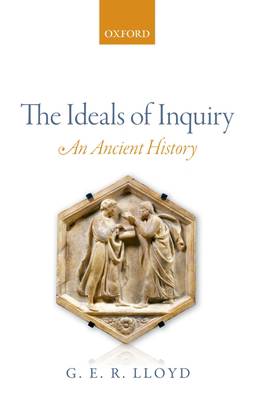
Je cadeautjes zeker op tijd in huis hebben voor de feestdagen? Kom langs in onze winkels en vind het perfecte geschenk!
- Afhalen na 1 uur in een winkel met voorraad
- Gratis thuislevering in België vanaf € 30
- Ruim aanbod met 7 miljoen producten
Je cadeautjes zeker op tijd in huis hebben voor de feestdagen? Kom langs in onze winkels en vind het perfecte geschenk!
- Afhalen na 1 uur in een winkel met voorraad
- Gratis thuislevering in België vanaf € 30
- Ruim aanbod met 7 miljoen producten
Zoeken
€ 45,95
+ 91 punten
Uitvoering
Omschrijving
Long before science as we know it existed, sophisticated studies of the physical world were undertaken--in Mesopotamia, India, China, and Greece. G. E. R. Lloyd explores the methods, subject-matter, and aims of those studies. He illuminates the origins of human intellectual inquiry, finding similarities and differences across cultures.
Specificaties
Betrokkenen
- Auteur(s):
- Uitgeverij:
Inhoud
- Aantal bladzijden:
- 174
Eigenschappen
- Productcode (EAN):
- 9780198776925
- Verschijningsdatum:
- 30/06/2016
- Uitvoering:
- Paperback
- Afmetingen:
- 216 mm x 140 mm
- Gewicht:
- 230 g

Alleen bij Standaard Boekhandel
+ 91 punten op je klantenkaart van Standaard Boekhandel
Beoordelingen
We publiceren alleen reviews die voldoen aan de voorwaarden voor reviews. Bekijk onze voorwaarden voor reviews.









